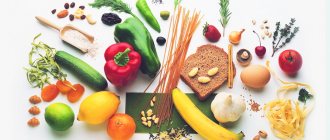To keep healthy? But as?
Now almost all information is in the public domain, so everyone knows (or should know) what needs to be done to maintain health:
- eat right, consuming plenty of vitamins;
- sleep 8 hours a day;
- do not overwork;
- take daily walks in the fresh air;
- exercise;
- to drink a lot of water;
- undergo preventive medical examinations, consult a doctor on time if something bothers you, etc.
We know this, but our lazy disorganization forces us to act in our own way: lead a sedentary lifestyle, eat harmful processed foods, sleep little, be nervous a lot and remember about doctors only when we can no longer endure the pain.
Naturally, all of the above negatively affects our health and prevents us from maintaining it.
What prevents us from maintaining health?
The main enemies that prevent us from maintaining our health in good condition until old age are:
- Sedentary lifestyle.
If you have a sedentary job, if you spend a lot of time in front of the TV, you should use every free minute to walk, get some fresh air, or go to the gym.
And you don’t need to talk about how busy you are.
If you want, you will find time to maintain your health!
- Stress and depression.
The hackneyed phrase that all diseases are caused by nerves is still relevant.
Stress “eats” our health, so we need to do everything to not let it into our lives.
Learn to relax (yoga, meditation, breathing exercises) and not get nervous over trifles.
- Overwork and lack of adequate sleep.
We want to do everything, but there is so little time in the day, so we begin to steal the time allotted for sleep and rest.
At first we sleep 7 hours and work with one day off, but gradually there is no more than 5 hours left for sleep and we have to work without any days off at all.
Do you think it is possible to maintain health with such a rhythm of life?
- Absorption of junk food.
You cannot maintain your health by eating all sorts of nasty things.
- Having bad habits: drinking alcohol and cigarettes will definitely not help you stay healthy.
A glass of red wine or a glass of cognac from time to time will not hurt, but drinking liters of alcohol poisons the body.
I'm not talking about cigarettes.
Stop with both.
- The development of minor illnesses into chronic illnesses due to fear of doctors or unwillingness to waste time visiting them.
How can you maintain your health without regular medical examinations?
- Excess weight.
Fat people cannot be healthy.
I'm very concerned about a recent internet trend: praising fat women.
Like, it’s much sexier than “soup sets” and “ironing boards.”
Firstly, there is no need to lie: few men will choose a chubby woman with a set of fat folds and cellulite when a girl with a slender, toned figure looms nearby.
And secondly, even if we discard the “like/dislike” aspect, then why advertise something that ruins health and provoke women to eat more and run away from the gym like the plague?
How to keep your brain young and healthy
Want to stay young? Dance!
Photo: Ivan VISLOV
Each of us wants to stay young as long as possible, but time, alas, takes its toll. After 30 years, age-related changes gradually begin to occur in our body - muscles weaken, visual and hearing acuity decreases, memory deteriorates, and fatigue increases. For everyone, these processes occur individually, at different speeds, but they are irreversible. Neurologists call this physiological aging.
— The physiological process of aging has an abrupt trajectory. The three main points are 34 years, 60 years, 78 years. During these periods, the level of certain blood proteins changes dramatically. In everyday life, these stages can be considered youth, maturity and old age, explains Anatoly Fedin . — In one American study, which included more than 2 thousand volunteers, it was found that the peak of mental functions occurs at 22 years of age, brain aging begins at 27 years of age, memory deterioration is recorded from 37 years of age, and loss of other intellectual functions after 42 years of age. The brain works due to the fact that the neurons of a gigantic number of neural networks constantly exchange information with each other in the form of electrical impulses. This process is significantly optimized and accelerated by myelin sheaths, which form glial cells around axons (long processes of neurons through which impulses pass), acting as an insulator for an electrical cable. With age, the amount of myelin gradually begins to decrease.
Head of the Department of Neurology, Pirogov Russian National Research Medical University, Honored Doctor of the Russian Federation, Professor Anatoly Ivanovich Fedin. Photo: personal archive.
— Not long ago the term “super-old people” appeared. Who are they?
— These are individuals over 80 years of age who have retained the memory acuity of healthy young people. It has been established that the brains of “super-old people” decrease in size more slowly than those of ordinary people, which provides higher resistance to memory deterioration characteristic of old age. This suggests that age-related cognitive decline is not inevitable.
— Is “super old age” genetic or can it be trained?
“The answer to this question has yet to be found, but each of us can take care of our cognitive health. There are some useful tips. Thus, with age, one usually loses faith in one’s own mental abilities, even if they have remained at a very high level. People begin to rely on various “crutches”: an address book in a mobile phone, notes before going to the grocery store, a car navigator, and so on. However, by not regularly testing our abilities, we accelerate personal regression. In this regard, gadgets do us a disservice, with the help of which many perform even simple arithmetic operations from their youth.
Rely on gadgets, but don’t be bad either.
Photo: Artem KILKIN
Another tip: take care of your ears. Several studies have found that cognitive abilities can be significantly reduced with hearing loss. Regardless of age, it is important to avoid situations that wear out your hearing. Listening to loud music for just 15 seconds a day is enough to damage your hearing; and even using a hair dryer to dry hair for more than a quarter of an hour can cause damage to those small cells that in our body are responsible for receiving sounds from the surrounding space. If your hearing is already impaired, consult a doctor - it is always better to solve the problem in the early stages.
— It is believed that solving crossword puzzles is useful for training the brain. This is true?
“Apparently, there is little benefit from such activities.” Instead of wasting time on brain training using a smartphone or solving crossword puzzles, it is better to engage in more serious “brain gymnastics” - learning a foreign language. This activates a range of skills, developing memory, attention, motor skills and sensory perception as unfamiliar-sounding foreign words are mastered. Mastering a foreign language gives the brain flexibility and elasticity, helping it not to lose these properties over the years. If your job is too demanding to include developing new skills as a hobby, then consider yourself extremely lucky—stimulating professional activities are great for keeping your brain functioning in good shape.
— Will physical activity help prolong the youth of the brain?
— The benefits of physical activity for older people are undeniable and far outweigh the possible risks (for example, as a result of a fall, ruptured ligaments or muscle strain). One study found that in older adults, 12 weeks of aerobic training (stretching, brisk walking, and aerobic dancing) improved attention, particularly reaction time, compared with a group that received no physical activity. A 13-year study of older adults (average age 78 years) found that regular physical activity (walking) increased cortical density by forming new neural networks, while the risk of cognitive impairment was halved. But the results of recent research suggest the unique properties of dance. Dance has a positive effect on the structure and function of the brain, and in the future, dance programs can be used as a non-pharmacological way to improve a person’s cognitive functions and physical well-being. This is discussed in detail in my large literature review (see Neurology News, No. 7-8 for 2020).
— Tell us a little more about this.
— Intense physical training may be contraindicated for people with chronic diseases, physically weakened elderly people, or there may simply be no desire to do it. In this case, a significant alternative is dance activity, which is more emotionally and socially enjoyable and, at the same time, places increased sensory, motor and cognitive demands on the body.
Dance provides a unique model for studying neuroplasticity and the interactions between the brain and human behavior because it is a synthesis of rhythmic motor coordination, balance, memory, emotion, social interaction, acoustic stimulation, musical perception and physical activity.
Compared to physical activity alone, the combination of dance properties has been recognized as a therapeutic approach in the treatment of Parkinson's disease, dementia, patients with mental illness, overweight children, and in the early and late rehabilitation of stroke patients.
Studies of the brain before and after exercise have generally shown that performing dance exercises leads to increased activation in task-related areas. However, long-term training may lead to automation, which will have the opposite effects because less effort will be required to control the cortex once the skill is fully developed. For example, in professional ballet dancers or musicians, advanced motor skills may, in contrast, result in decreased activation of task-related brain areas. This raises the question: is it worth using the practice of long-term dance training to improve cognitive functions in people without dance experience and is there a limit after which training becomes unfavorable?
Studies have shown that mastering a new dance skill by older people who have not had such experience throughout their lives leads to active stimulation of neuronal resources in the first six months from the start of training. In order to maintain structural and functional changes in the brain in the long term and to avoid automation of the acquired skill, it is advisable to update dance programs.
Long-term dance classes are significantly superior to physical training in terms of simultaneous active activity of many parts of the brain, which is due to the multiple nature of dance, which combines physical, cognitive and coordination effects.
I mastered a new dance move and pumped up my brain!
Photo: Evgenia GUSEVA
The uniqueness of the dance also lies in the fact that it is performed to music, evokes positive emotions, increases the desire to continue learning and reduces physical fatigue during classes. The experience of the conducted studies has shown that dance causes structural and functional changes in the adult brain, improves cognitive functions and emotional and social interaction of a person with the outside world, and promotes health and physical activity. This knowledge has great promise in terms of developing programs for non-pharmacological prevention of aging and rehabilitation for neurological diseases based on dance. So we dance from youth to old age!
Without proper nutrition you cannot stay healthy
We are what we eat.
Of course, not everything is so banal and straightforward, but still, the state of our health depends on what we eat and what we deny ourselves.
Irreparable harm is caused to him by:
- Semi-finished products.
Yes, they save time on cooking, but they contain practically no useful substances.
Their only benefit is that they satisfy the feeling of hunger, but at what cost?
- Anything that is improperly prepared: by smoking, frying in a large amount of fat, etc.
The healthiest food is baked in its own juice or steamed, which helps maintain health.
- Nasty things, such as crackers, chips, snacks and other things.
Read at least once the composition of the product you are buying, and you will be horrified by the number of different emulsifiers and flavorings in its composition.
What should you eat to stay healthy?
- Greens - many and different.
- Vegetables and fruits - both raw and cooked.
- Fish – sea fish with a high calcium content and those rich in omega-3 fatty acids: salmon, mackerel.
- Liver – especially if you have low hemoglobin.
- Seafood.
- Lean meat: chicken, turkey, rabbit, beef.
- Nuts - they have a good effect on brain activity and memory and will allow you to remain sane until old age.
- Whole grain bread.
- Cereals, peas, beans.
- Potatoes - just don’t fry them, but bake them in the oven in their skins, so they will retain all their beneficial properties.
- Eggs - those who say that the yolk contributes to the formation of cholesterol are lying.
- Honey is one of the few healthy sweets and a powerful source of various nutrients.
You also need to drink a lot of water: at least two liters in winter and three in summer.
Remember that the body does not consider tea, coffee, soups, compotes, sweet soda, etc. as water.
Yes, these are liquids, but they are not water and they do not help much in maintaining health.
5 useful tips on how to stay healthy
If you have seriously decided to maintain your health into old age, then here are five more useful tips that will help you achieve this:
- Take care of your body hygiene: take a shower twice a day, brush your teeth in the morning and evening, wash your hands when returning home, especially if you have been in contact with money.
- Take vitamins.
Even if you eat right, it won’t hurt (especially in early spring) to strengthen your health with vitamins from a jar.
- Forget about elevators, use only the stairs.
Climbing stairs is a great cardio workout that helps tone your legs and butt.
- Take not an ordinary shower, but a contrast shower - it not only helps maintain health, but also prolongs the youth of the skin.
- Visit the gym at least twice a week or go for a morning jog.
How to improve your health? 5 tips
All people want to be healthy, but not everyone can boast of excellent health and strong immunity. And the lifestyle of a modern person (poor nutrition, stress, ecology, lack of exercise) contributes to various diseases. So how can you become healthy? Let's take a closer look at this issue.
Healthy eating
Various fast foods and fast food are a kind of scourge of modern society. Eliminating all this (including semi-finished products) should certainly be first on your list of priorities. Eat four to six meals a day in relatively small portions. This will avoid feelings of hunger and the habit of overeating (especially at night). Introduce fresh fruits and vegetables into your diet. Never skip breakfast. This is fraught with various diseases of the gastrointestinal tract.
The right start to the day
In the morning, it is advisable to drink a glass of clean water at room temperature, and do not forget about morning exercises. By spending just 5 minutes in the morning, you will benefit for the whole day. No need to come up with complicated exercises. Light warm-up and stretching are the key to a cheerful and productive day!
Maintaining a daily routine
Naturally, if you go to bed late at night, then there can be no talk of any easy awakening and exercise. You need to sleep at least 7 hours. It's better to go to bed and get up at about the same time. In this case, it will be much easier for the body to cope with the load.
Playing sports
Movement is life! Unfortunately, modern life forces a person to be sedentary. And playing sports in this case is very important. You definitely need to find time for it.
What kind of sport is better to do? Everything is to your taste. Of course, many will say: “I don’t have time for this at all.” But, of course, you can find it. For starters, walk more. Preferably in forested areas and public gardens. Don't use the elevator, take the stairs.
Start running. This is one of the most accessible types of activity. You are not required to go to the gym and pay money, nor do you need to buy expensive uniforms. Find at least twenty minutes for yourself. A little precaution - do not run on asphalt or other hard surfaces, as this puts a lot of stress on your joints. Better buy special running shoes.
Rejection of bad habits
I know this is easier said than done, but having bad habits like drinking alcohol or smoking cigarettes will definitely not make you healthier. Set yourself a serious goal and you will succeed.
In conclusion, I would like to advise you to start hardening and take vitamins. If you wish, you can contact a specialist for advice.
In such a serious matter of how to become healthy, there are no magic, miraculous buttons, by pressing which everything will work out right away. You need to put in maximum effort and work hard. Of course, you won’t be able to implement all of the above tips into your life right away, but it is extremely necessary to do so. Remember, your health is at stake. Good luck!
Elena,











